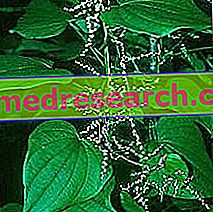Definition
The term "ischemic heart disease" encompasses numerous pathologies of variable aetiology, all of which are however accompanied by a marked imbalance between myocardial oxygen supply and metabolic demand: this degenerates in the alteration of the contractile capacity of the myocardium and in the inability of regulation of the electrical activity of the heart.
In ischemia there is a deficiency or a complete suppression of the blood supply in a precise anatomical area.
Causes
Ischemic heart disease is closely linked to coronary atherosclerosis, in turn related to: alcohol abuse, advanced age, diabetes mellitus, hypercholesterolemia, arterial hypertension, obesity, genetic predisposition, previous cardiovascular pathologies, smoking.
Symptoms
Ischemic heart disease can manifest itself with different symptoms, which can lead the patient even to death: angina pectoris, arrhythmia, primary circulatory arrest (which leads to the sudden death of the patient, when not treated immediately), myocardial infarction, heart failure, silent ischemia .
In ischemic heart disease, in the patient there is a difficulty in eliminating the waste substances, a clear reduction in the supply of oxygen and a poor availability of nutrients
Information on ischemic heart disease - Drugs for the treatment of ischemic heart disease is not intended to replace the direct relationship between health professional and patient. Always consult your doctor and / or specialist before taking ischemic heart disease - Drugs for the treatment of ischemic heart disease.
drugs
Given the dangerous nature of the disease, the first step towards recovery from ischemic heart disease is undoubtedly prevention: the identification of risk factors is fundamental, therefore the correction of lifestyle and the recovery from predisposing diseases, which are among the norms of primary prophylaxis. For example, we have seen that ischemic heart disease can be favored by obesity, hypertension, hypercholesterolemia and diabetes: in one word, ischemic heart disease is heavily affected by the metabolic syndrome, therefore the implementation of strategies to cure the disease underlying can certainly reduce the risk of symptomatic degeneration.
Also the smoking habit and the abuse of alcohol can in some way predispose the patient to ischemic heart disease: not surprisingly, it is recommended to stop smoking and drink alcohol, rules that should always be followed, not only for prevention from serious diseases such as ischemic heart disease.
To avoid the risk of ischemia, especially in its acute cardiac episodes, it is recommended to take antiplatelet agents, particularly recommended in those subjects with more risk factors. The administration of beta-blockers, ACE inhibitors and calcium channel blockers (to treat hypertension) is also one of the primary prevention rules. Nitrates, on the other hand, prevent angina in the context of ischemic heart disease.
Angina Care Medications
The most widely used drugs for the treatment of angina pectoris are nitrates (mainly nitroglycerin, Isosorbide dinitrate and Isosorbide mononitrate), platelet anti-aggregants (acetylsalicylic acid, heparin), beta-blockers (such as Atenolol, Acebutolol hydrochloride, Metoprolol tartrate, etc.) and calcium antagonists (eg. Verapamil, Amlodipine, etc.). Often these drugs are used in combination: for example, a beta-blocker may not be sufficient to remove the symptoms of angina, so the patient can also take a calcium channel blocker or a long-acting nitrate.
Even statins are used in therapy for the treatment of angina pectoris: they are indicated to minimize the possibility of cardiovascular diseases in patients at risk (especially if associated with nitrates), and to prevent complications.
Medicines for the treatment of hypertension
For the prevention of ischemic heart disease, it is essential to monitor blood pressure and prevent peaks that are too high; for this purpose, some drugs are indicated to lower blood pressure: diuretic drugs, beta-blockers, ACE inhibitors and calcium channel blockers. The most widely used for the treatment of hypertension are diuretics and beta blockers, such as:
- Spironolactone (eg Aldactone, Uractone, Spirolang): the drug belongs to the pharmacological class of potassium-sparing diuretics. The dosage for the treatment of hypertension is very variable (50-200 mg per day) and must be established by the doctor on the basis of the patient's blood pressure.
- Hydrochlorothiazide (eg Rasitrio, Esidrex): thiazide diuretic drug. It is recommended to start therapy for hypertension by taking a dose of 25 mg once a day. Maintenance dose: it is possible to increase the dosage of 50 mg, to be taken orally, also divided into two doses. Consult your doctor.
- Acebutolol hydrochloride (eg. PRENT, Sectral): the drug belongs to the class of beta blockers, useful for the treatment of hypertension. As an indication, take a 200 mg tablet of medication, preferably before breakfast. It is possible to gradually increase the dosage up to a maximum of 400 mg per day.
- Carvedilol (eg Colver): another beta blocker drug, indicated for the treatment of hypertension. It is recommended to take two tablets (for a total of 12.5 mg) per day for the first two days of treatment; then, take 25 mg of active, in a single dose, up to a maximum of 50 mg (divided into two doses). Consult your doctor.
For further information: see the article on drugs for the treatment of hypertension.
Drugs for the treatment of obesity
Obese patients who are unable to get benefits on reducing their body weight with a diet combined with constant exercise can find help by taking some medications. In fact, obesity is one of the risk factors for ischemic heart disease. Orlistat and acarabose are two drugs particularly indicated for treating obesity:
- Orlistat (eg Xenical, Alli): the drug (lipase inhibitor) is indicated as an adjunct to low-calorie diets: it is the drug of choice in the treatment of obesity, together with Sibutramine (until a few years ago). Indicatively, the drug should be taken at a dose of 120 mg, orally, three times a day, during the meal or no later than an hour after its end. It is recommended to take a multivitamin supplement (eg. Multicentrum, Supradyn, Be-total plus) in combination with orlistat: this drug, in fact, hinders the absorption of some nutrients and vitamins essential for the body to function properly.
- Acarbose (eg Glucobay, Glicobase): approximately, it is recommended to take half a tablet (corresponding to 50 mg) 3 times a day, during a meal. The dosage should be changed progressively based on the patient's response to treatment. Consult your doctor. This drug is widely used to prevent ischemic heart disease, obesity and diabetes.
Drugs for the treatment of coronary atherosclerosis
As we know, atherosclerosis is one of the predisposing factors for ischemic heart disease, therefore the administration of drugs for the prevention / treatment of atherosclerosis is equally useful for removing the risk of episodes of ischemic heart disease.
The following are the most commonly used medications for the treatment of atherosclerosis:
- High cholesterol treatment drugs
- Medicines for the treatment of hypertension
- Antiplatelet drugs
- Antidiabetic drugs
- Integration of omega three
Heart Attack Care Medications
Myocardial infarction is one of the most dangerous consequences of ischemic heart disease: the implementation of pharmacological and non-pharmacological strategies aimed at preventing heart attack also implies the prevention of ischemic heart disease.
The following are the drugs most used in therapy for the treatment of myocardial infarction, and some examples of medicinal specialties:
- Antiplatelet agents: eg Acetylsalicylic acid, heparin, Clopidogrel
- Thrombolytic drugs: ex. alteplase
- Beta-blocking drugs: ex. Acebutolol hydrochloride, metoprolol tartrate, Timolol maleate
- ACE inhibitors: ex. Ramipril, Lisinopril
- Nitrates: ex. nitroglycerine
- Drugs for the treatment of hypercholesterolemia: eg Gemfibrozil, Colestyramine
The administration of some drugs rather than others depends on the general state of health of the patient; however, the primary goal of drug therapy is to avoid the onset of ischemic heart disease, and its relapses.



